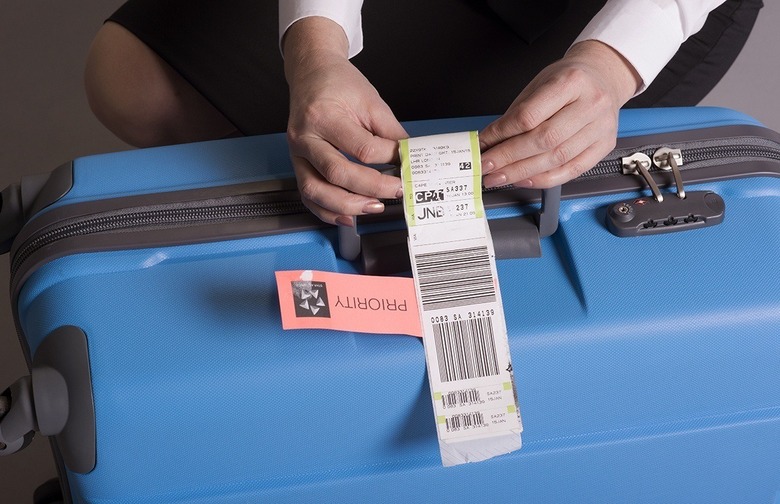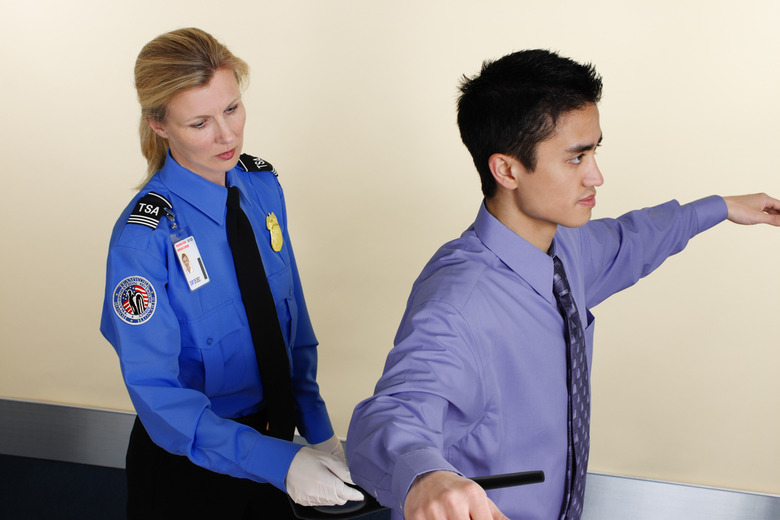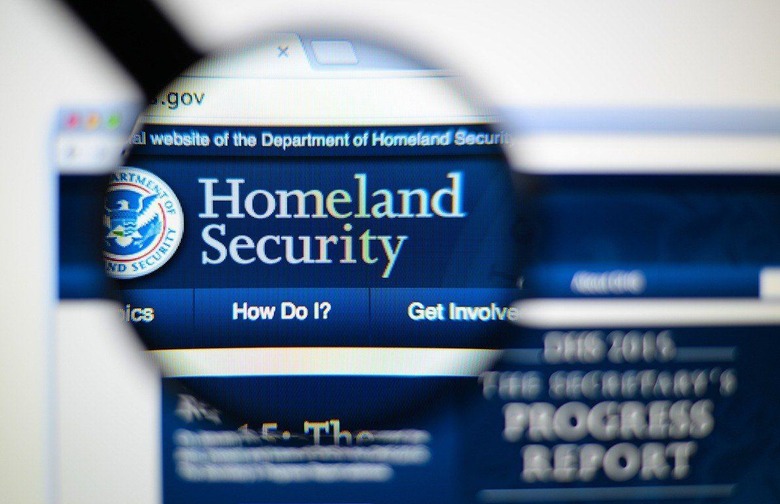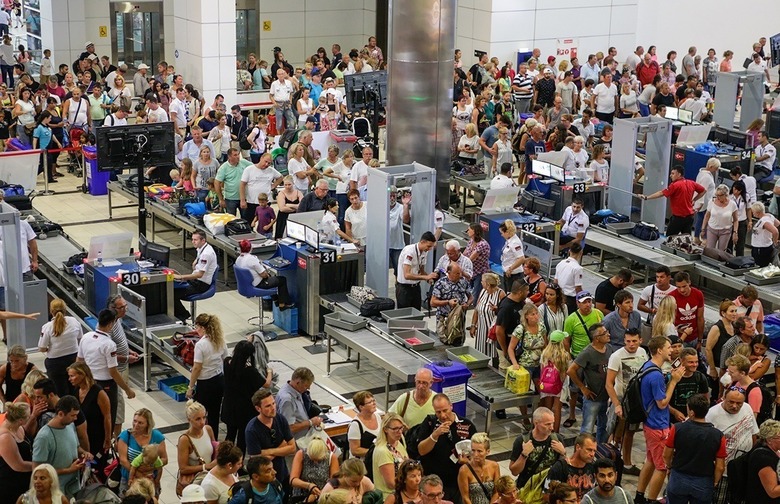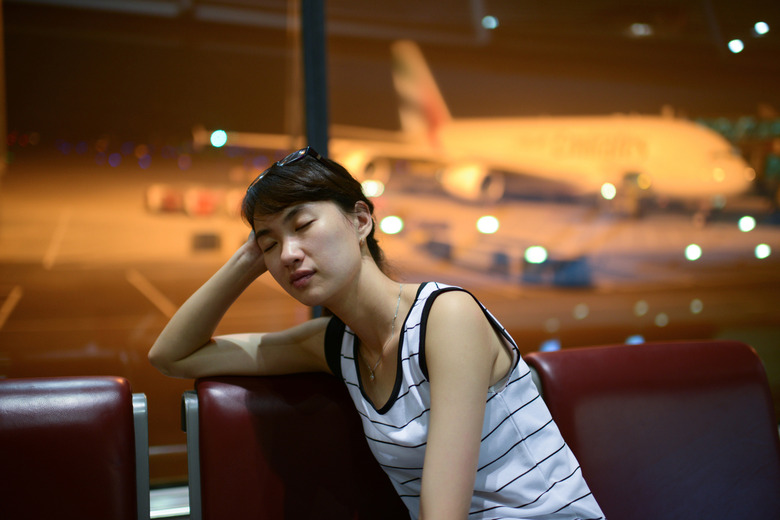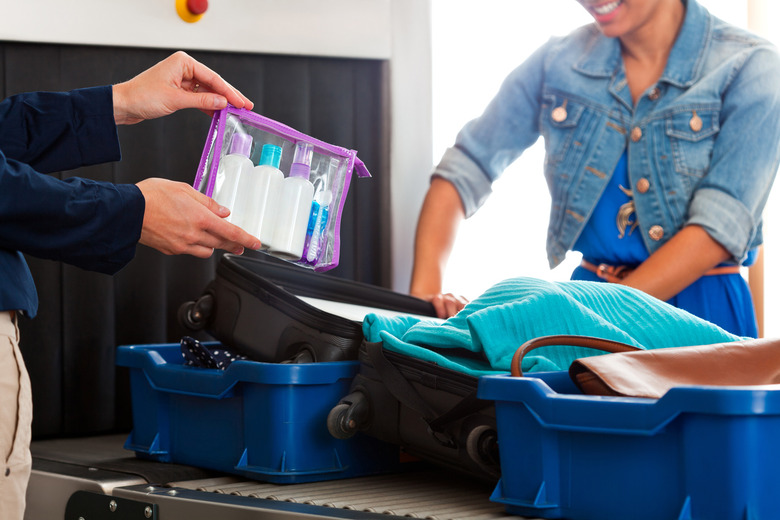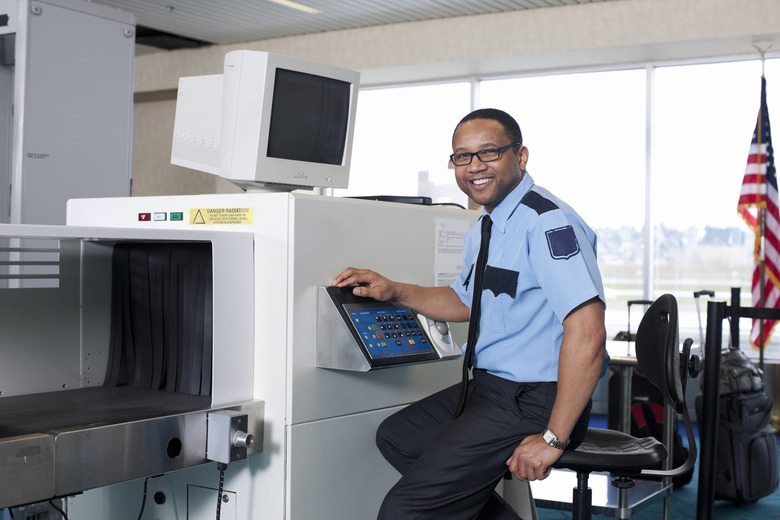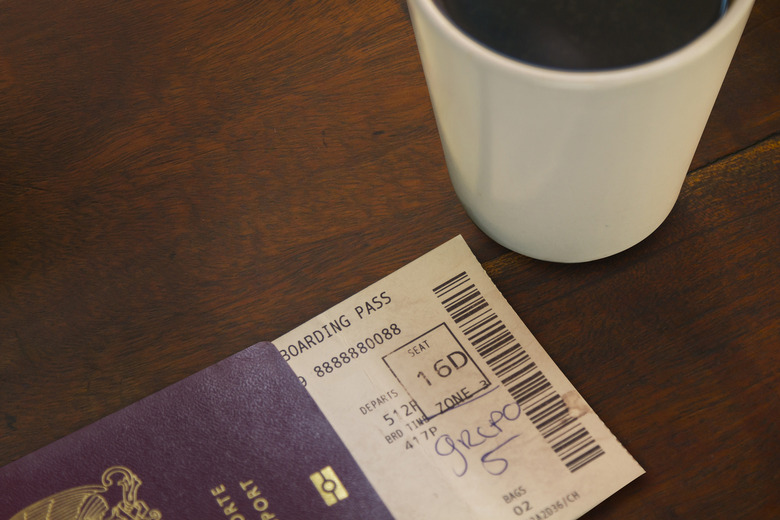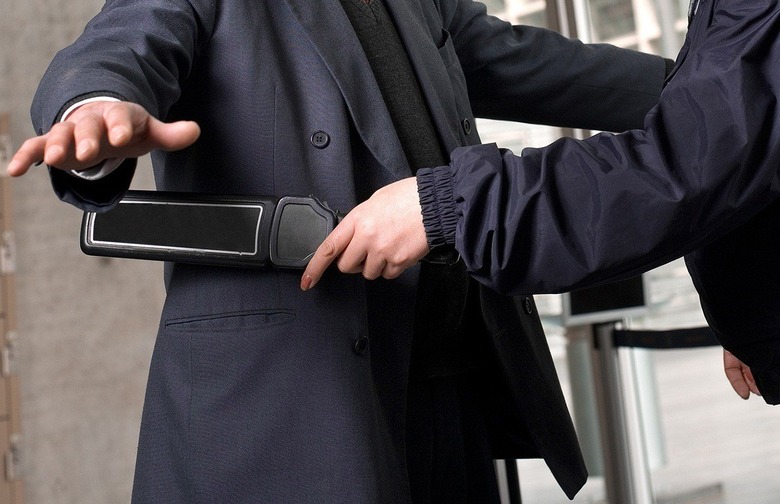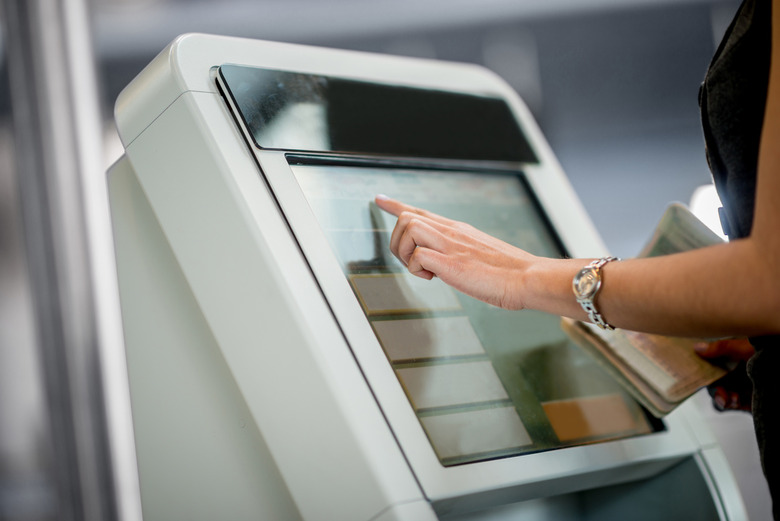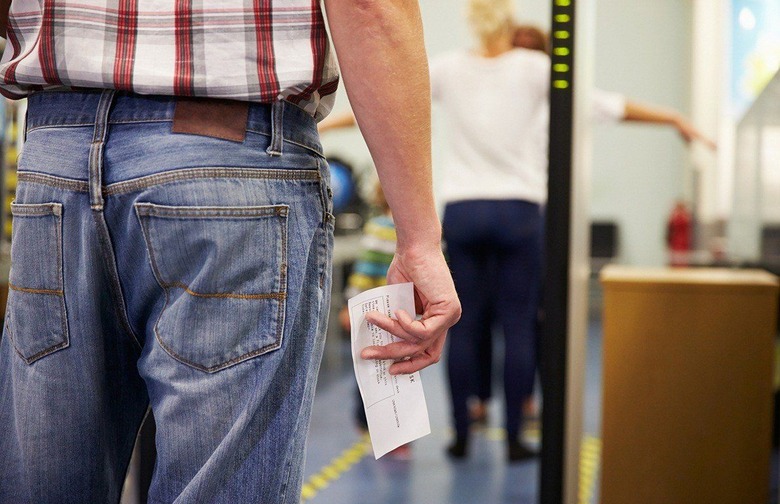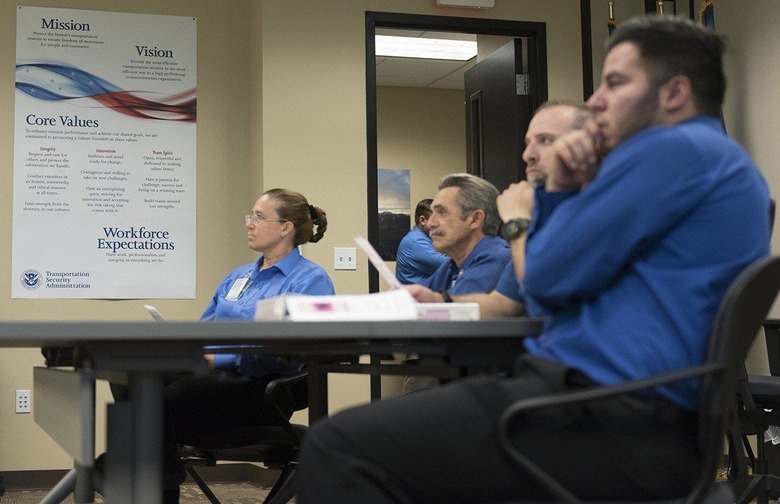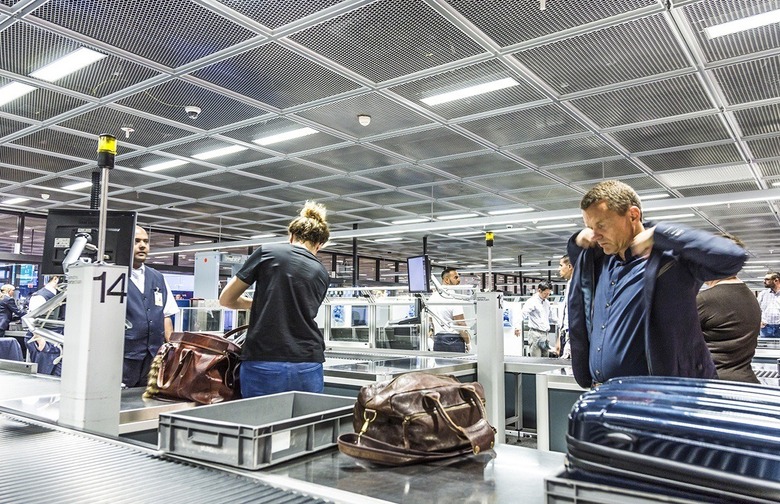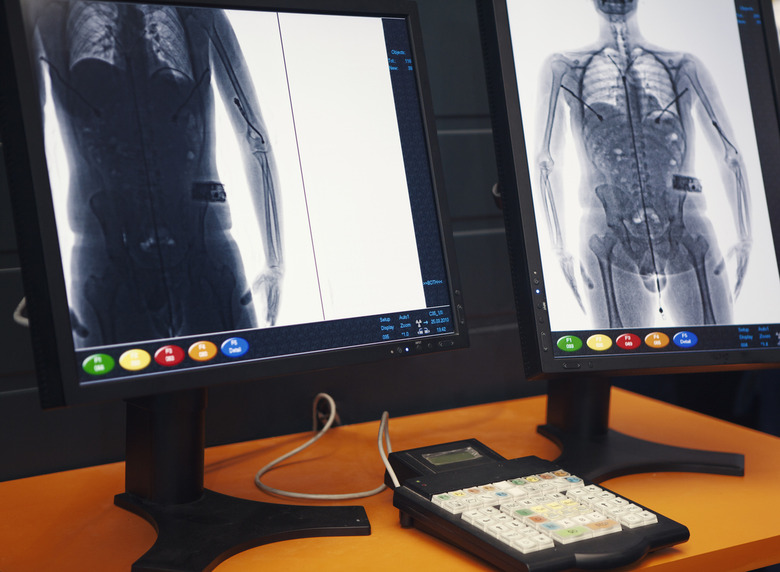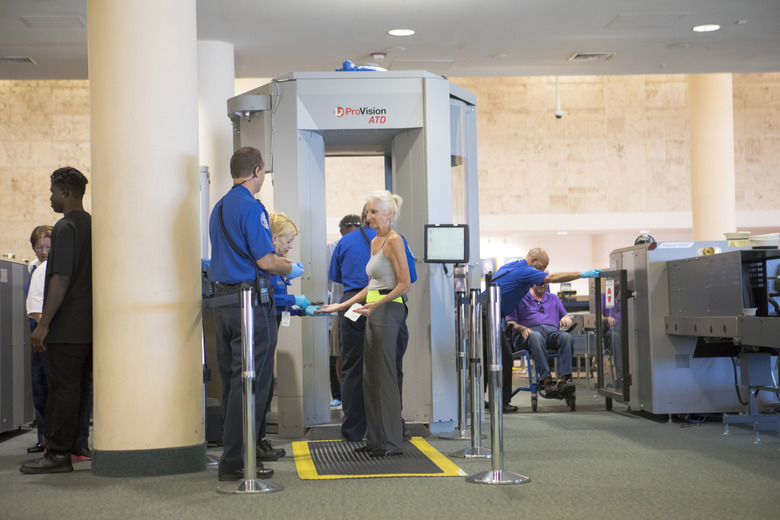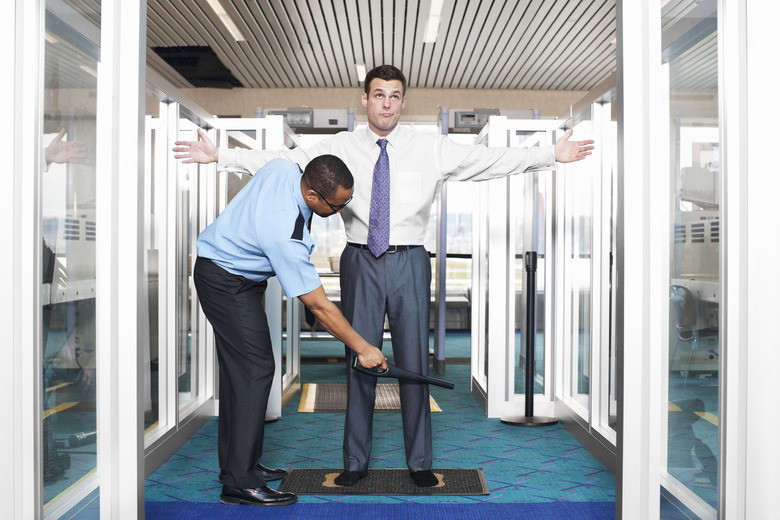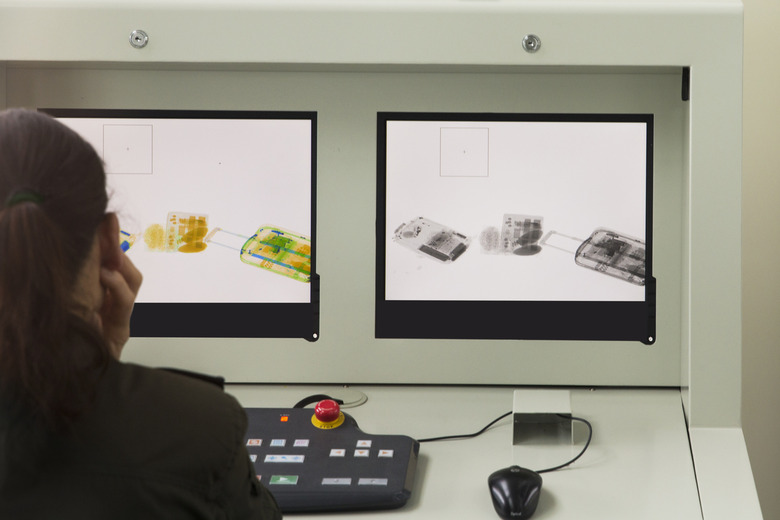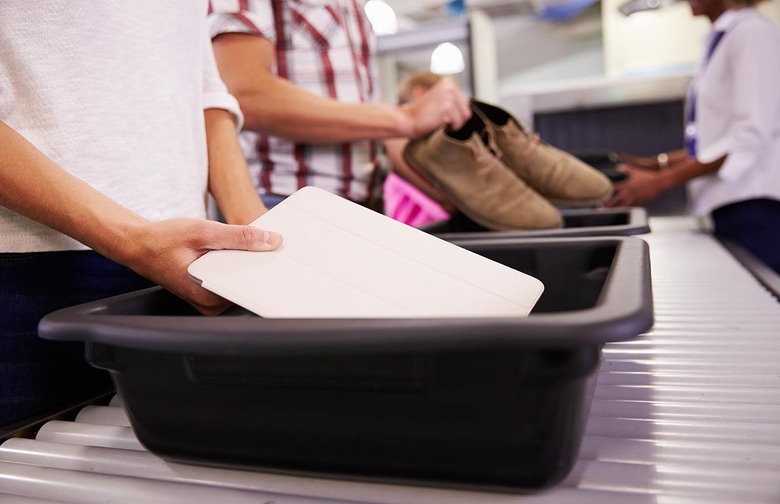20 Things Your TSA Agent Won't Tell You (But You Need To Know) Gallery
When it comes to the Transportation Security Administration (TSA) and their officers, most people aren't exactly fans. It's sometimes confusing to know what you can or can't take through security, and the long process can make travel more stressful, especially if you're just trying to survive a long flight.
Many find airport security to be unnecessarily invasive — especially when it comes to how much of a person's body is shown when going through body scanners and how people feel about pat-downs. People have such strong feelings toward the TSA that some officers find it easier to fib about the true nature of their job than just state that they're a TSA agent at an airport.
But there are a few facts about the TSA that could make things easier for many travelers if they were widely known. To make your next travel experience more pleasant, read these 20 things your TSA agent won't tell you.
Agents Aren’t Always Delicate
Although checked baggage will sometimes reach its destination accompanied by a paper notification stating that the bag was searched by TSA agents (about 5 percent of bags are searched in this manner), the contents are generally still in good order. However, not all TSA staffers are as delicate as they should be. Sometimes clothes and other personal items arrive in disarray, fragile objects are broken, bottles are spilled, and — all too often — wrapped presents are torn apart.
Agents Get Tenure
When you get hired as a TSA agent, you're put on a two-year probationary period during which you have to receive regular training as well as performance reviews. After that period, their job is generally secure and it's exceedingly difficult to fire an employee unless they commit a crime. Industry insiders even call it becoming a "made" man or woman, a term generally used for a fully initiated member of the mafia.
Agents Lie About Their Jobs
The TSA doesn't always have a great reputation, and their ever-changing rules can often be a source of frustration for many passengers. As a result, many officers aren't completely truthful about their job title when asked what they do, instead saying they work for the Department of Homeland Security — which isn't technically wrong, but still not the complete truth.
Agents Speak in Code
Life in the security line can get quite boring, so in addition to the official code words used by employees, some agents have invented their own. This can include ways to notify co-workers of attractive passengers (allegedly, a term like "hotel papa" or a code number are used in these instances) or innocent-sounding terms that alert agents of an annoying passenger approaching. In both cases, these types of fliers might receive a prolonged screening experience.
Cats Are Not Their Favorite Passengers
Terrorists are the No. 1 enemy of TSA agents, but cats are a close second. They scratch, hiss, hate being picked up, and don't respond to commands. Believe it or not, cats need to get patted down too, and sometimes they use this opportunity to make a break for it. If a cat manages to escape before being patted down, a TSA supervisor can actually shut down the entire terminal.
Evening Travelers Are Preferred Passengers
Perhaps it's because they haven't yet had their morning pick-me-up, but morning passengers are apparently significantly meaner than those flying in the evening. Passengers catching late-night flights are also generally the nicest.
Few Agents Know Full Standard Operating Procedure
The TSA's standard operating procedure (SOP) is hundreds of pages long; as a result, not many have actually read the entire document. They tend to use common sense and go by word of mouth, which is why you may find a TSA agent who won't let through an item that you know is allowed. If that happens, you can ask them to call a supervisor and check the SOP.
It’s Not All Bad Press
With all the negativity that surrounds the TSA (including, admittedly, this article) and its demanding agents, consumers rarely get to hear about the happy moments TSA employees experience. For instance, almost every person has met at least one high-flying celebrity, as famous people are spotted traveling through airports all the time — and each one needs to eventually go through security. Once in a while, agents are even witness to a pregnancy announcement or a proposal!
Scribbles on Your Ticket May Mark You as Suspicious
Generally, TSA officers will mark your ticket with their initials, badge number, or phone number to indicate who screened you. If they find you suspicious, they may also mark the boarding pass to indicate to other checkpoint officers that you should receive special screening.
Security Isn’t All That Secure
Despite all the metal detectors, body scanners, and pat-downs, it turns out an awful lot of items can still get through security. In 2015, the Department of Homeland Security (which oversees the TSA) sent undercover agents into some of the busiest airports in America with banned weapons and fake explosives in their bags and on their person. They found that 95 percent of the items made it through. In fact, TSA agents failed to detect the items in 67 out of the 70 tests conducted.
There Are No Travel Perks
Unlike flight attendants and other airline employees, TSA agents don't receive perks like free space-available air travel or the occasional free meal. In fact, accepting any sort of gift could be grounds for termination — unless the agent has a friend or family member who is an airline employee.
Their Jobs Change
Agents usually switch positions every 30 minutes. An agent can go from being the x-ray operator for half an hour to checking your tickets the next. This is done in order to avoid employee error, as doing the same monotonous task for too long can lead to agents missing something.
They Can’t Actually Arrest You
Extra airport security is often blamed on the TSA, which can make some travelers fearful — especially ones who may have packed a small pocket knife or other contraband and worry they'll be unexpectedly arrested. Though it's true that the agents may try to hold you until police arrive, the agency itself operates on consent (expressed or implied), meaning you're generally free to leave the airport if security doesn't want to let you through.
They Cash In on Pocket Change
The TSA makes an awful lot of money on pocket change that passengers leave behind; in 2016, they made $867,812.39. According to the agency, "receipts of unclaimed money are deposited into a Special Fund account so that the resources can be tracked easily and subsequently expended." So keep track of your money, lest the TSA cash in on your forgetfulness.
They Pass on Grass
Worried about the TSA finding your stash? They might, but it's not their goal. "TSA security officers do not search for marijuana or other drugs," the official government website states.
They Used to Catch an Eyeful
Full-body scanners are in most airports nowadays, allowing TSA agents to see silhouettes of passenger's bodies in order to detect any hidden weapons or other dangerous items. However, the scanners today are different from the ones initially used. The first machines used backscatter X-rays to create an image of the body, which many travelers (as well as the American Civil Liberties Union) saw as too invasive because they were capable of revealing private medical information about passengers, including the fact that some use colostomy bags, have missing or prosthetic limbs, or are transgender (yes, it's that detailed). When push came to shove, the TSA backed down, and in 2013 the scanners were replaced with devices capable of using "Automated Target Recognition" software, which replaces the pictures of naked ghost bodies with generic-bodied, cartoon-like representations.
Turnover Is High
In a recent survey of job satisfaction at federal agencies, the TSA ranked near the very bottom of the list. The numbers seem to tell the same story; in 2015, 9.5 percent of full-time TSA agents quit their jobs (compared to 4.2 percent in 2010), while 19 percent of part-time screeners left (as compared to 13 percent in 2010). It isn't just lack of satisfaction that's causing workers to quit, however — constantly preparing for dangerous situations can be stressful no matter how you try to combat it.
You’ll Stand Out If You Opt Out
The TSA isn't a fan of people who choose not to go through the full-body scanner. While they don't mind passengers who can't use it due to medical reasons, people who refuse through personal choice add more time to the security screening process, which the staff often finds cumbersome.
Your Food Is the Bomb
Ever wonder why your TSA agent spends so much time scrutinizing food packed in luggage? It's because many of these edible items actually look like explosives. In an X-ray machine, a wheel of cheese is indistinguishable from C4. Meats result in a similar situation, as all of these foods appear orange on the display — just like bombs.
Your Stuff Might Get Sold
Ever wonder what happens to the items discarded by passengers when the TSA won't let them through? They're not simply thrown in a landfill, but instead collected and later sold for a profit. Items such as knives, spears, nunchucks, and other weird items are collected each day by TSA screeners, shipped to states that are looking to make a buck, and then sold via local government surplus stores or online. That's not even the half of what's going on behind the scenes in the air travel industry; you won't believe what secrets flight attendants hold.
More from The Daily Meal:
The Best Food and Drink in Every State
25 Crazy Facts About Airplane Food
10 Ways a Travel Agent Can Save You a Headache
The Prettiest Town in Every State

